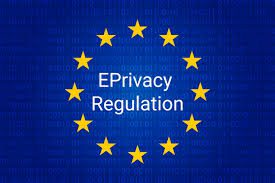Croatian Presidency recognises core issues in ePrivacy text

On Tuesday 21st January, the State Secretary in charge of the minister for sea, transport and infrastructure in Croatia, Josip Bilaver, spoke to MEPs of the LIBE committee, providing them with an update on the state of play of the discussions in the Council on the ePrivacy Regulation.
Croatia is the 7th Presidency of the Council of the EU to work on the ePrivacy file. Mr Bilaver reminded the parliament of the remaining open issues in the text, highlighting that all of them directly affect the core of the ePrivacy proposal:
– the relationship between ePrivacy and GDPR as well as the scope of the ePrivacy
– the legal grounds to process data and metadata from electronic communication
– the issue of access to website content dependant on consent to cookies
– the fight against child imagery online
– the fight against online fraud
The Croatian presidency is willing to continue to work on this file, with the strong objective to reach the right balance between protecting privacy and enabling economic growth, innovation and development. The latter being especially important in the context of the EU’s ambition for 5G, and artificial intelligence.
“Finding the right formula is hard. Given that the past 7 presidencies have not be able to find a solution, it is presumptuous to say that Croatia will find a solution, but we will work hard in that direction” said the State Secretary. The Croatian Presidency will prepare new compromise to be discussed in February in the TELEWG of the council.
Unsurprisingly, many MEPs present in the room accused the Council to stall the process of adoption of the ePrivacy, reminding that the Parliament is waiting since October 2017 for the Council to reach a General approach. The rapporteur, Birgit Sippel (DE, S&D) argued that the ePrivacy text is not the place to introduce new provisions such as data retention and exception to fight against child pornography. MEP Sophie In’t Veld (Dutch, Renew Europe) recalled the strong position adopted by the parliament back in 2017, arguing that recent development in the field of online disinformation confirm the need for such a strong pro privacy protection. Patrick Breyer (DE, Greens) added that he will fiercely oppose any watering down of the proposal and encouraged the Council to better protect citizen’s privacy. Finally, Cornelia Ernst (DE, GUE) questioned the reason behind the absence of progress in the Council.
MEP Karlo Ressler (EPP, Croatia) was the only MEP echoing the Croatian State Secretary on the need for a balance approach which would enable a safe environment for children and the development of new technologies. The Commission abstained to comment on the lack of progress of the Council. However, on the rumours of a repeal of the text, Peter Eberl, Deputy Head of Unit Cybersecurity and Digital Privacy, insisted that the ePrivacy is an important building block and the Commission is going to work hard with the other institutions to reach an end.

